When COVID-19 Turned Jewish Atlanta Upside Down
The pivotal days were in mid-March, as much of Atlanta’s religious, communal and educational establishment shifted from in-person work on a Friday to the virtual world on Monday.
Dave Schechter is a veteran journalist whose career includes writing and producing reports from Israel and elsewhere in the Middle East.
“Indecent,” a play with distinctly Jewish themes, opened March 4 at Theatrical Outfit in downtown Atlanta to positive reviews for its cast and staging. “In fact, the delicate ambience achieved in this play is unlike any I’ve ever seen. It’s very difficult to talk about; it must be seen,” wrote the reviewer for Atlanta Intown.
Veteran Atlanta theatre director and educator Mira Hirsch was looking forward to a month long run. “I don’t remember really thinking about COVID as an issue prior to our opening night, the week of March 1. At the time, it seemed to be a regional crisis, concentrated in the Northeast. But as we moved into opening weekend, it became clear that we were not going to be spared at least some ramifications of the virus,” Hirsch said. By the second week, audiences expected to be nearly full were half that.
“Contrary to what most people might think, the biggest concern about continuing the run of this show, and others, wasn’t necessarily the audience, but the safety of the actors. While it would have been possible to continue the run for a bit longer with audience capacity capped at 50 people, there was no way to ensure the safety of the actors, who were performing very intimate scenes, and singing and dancing in very close proximity,” Hirsch said.
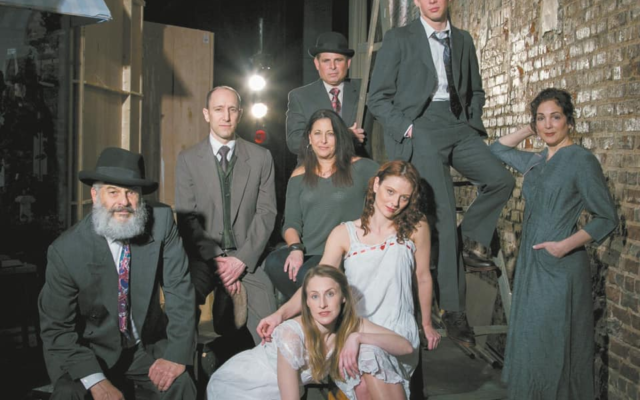
The curtain fell after the Sunday, March 15 performance, two weeks before the scheduled closing.
March 2020 was when, as Rabbi Steve Lebow, then nearing retirement from Temple Kol Emeth, put it, “The entire world – Jewish and otherwise – is turned upside down.”
The first AJT article about COVID-19 and the Jewish community — headlined “Being Jewish in the Time of Coronavirus” — appeared March 11. The next day brought “Coronavirus Impacts Jewish Programs and Life.” And four days later “Jewish Atlanta Adapting to New Reality.”
That new reality remains the current reality. Much of life will never return to “the way it was.”
Back when friends hugged, kissed or shook hands at synagogue. Back when fingers touched a mezuzah or a Torah scroll. Back when hands grabbed food at the post-Shabbat oneg. Before virtual Shabbat services, Torah study, Jewish education and b’nai mitzvah. Before funerals and shivas were conducted online.
Before synagogues halted in-person worship; before parents became combination tutors-hall monitors-cafeteria workers for children sent home to virtual schooling; before museums and recreation centers closed their doors and moved programming online; before concerts, lectures and films were canceled. Before the elderly were confined to their apartments and homes.
Before the financial landscape of Jewish Atlanta was shaken. Before the community responded by donating nearly $5 million to an emergency fund created by the Jewish Federation of Greater Atlanta.
Before Zoom meetings.
Before everyone asked: What are we going to do about Passover?
The AJT asked some of those featured in those early COVID stories to look back and discuss the lessons they’ve learned.

At the Ahavath Achim Synagogue, Rabbi Laurence Rosenthal several months earlier had assumed status as senior rabbi, succeeding Rabbi Neil Sandler. Rosenthal readily credits Sandler with urging him early on to take seriously the threat that COVID-19 might pose to their synagogue and the community in general.
The idea that the synagogue would close for any significant length of time “was beyond comprehension,” Rosenthal said. Yet on March 13, the congregation was informed that Ahavath Achim would be closed “for at least the coming week” and that worship services would move online.
Six months later, an important lesson has been “how important we are all to each other,” Rosenthal said. “I know it sounds like a real feel-good thing, but it’s more important than that.”
As president of the Atlanta Rabbinical Association, Rosenthal praised his peers for “really stepping up” and finding ways to bring together groups in the community that may not have interacted. “The community has been communicating with each other in ways I’ve never seen and it’s really wonderful. It really shows me, we could do this,” he said. “We really could still see each other in a shared destiny. … I think that moving forward the Jewish community is going to find itself to be a much stronger, much more cohesive community.”
Jewish HomeLife, which operates senior care facilities at three metro Atlanta locations and provides home services, was dealing with COVID-19 before most of the community. The virus has been a stubborn foe for operators of long-term care facilities. Indeed, more than 40 percent of the deaths in Georgia tied to COVID-19 have been individuals who lived in those settings.
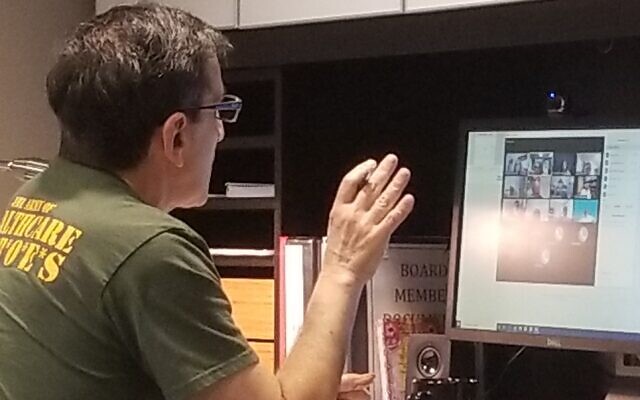
In late March, four residents of the memory care unit at the Berman Commons assisted-living facility tested positive for COVID-19. Soon after, six employees tested positive. They and others who later tested positive eventually recovered.
“We were put to the test very early on, and that experience enabled us to be better prepared than most organizations like ours. Initially it was alarming at how difficult it was to obtain enough PPE [personal protective equipment] to protect the residents and staff,” said Harley Tabak, CEO of Jewish HomeLife. In time, JHL developed sources of PPE, the most unique being through a Berman Commons family with a son working in China, and secured access to a lab that provided quick turnaround of high-sensitivity tests. By the end of June, JHL resumed family visits at Berman Commons — albeit outdoors and tightly-controlled — though group meals and activities have not.
“The lesson we have learned is how important masks and testing are in reducing transmission. We learned from our own experience early in the pandemic that wearing masks is essential to stop the spread. Even now, if we have a team member who tests positive, it does not spread to the residents because our staff takes the wearing of PPE so seriously,” Tabak said. “The same applies to testing. Waiting 7 to 14 days for test results was not an option for us. We have residents to care for 24/7 and needed to know test results immediately and with accuracy.”
By August, JHL — with assistance from Federation — was able to offer its COVID-19 testing service to Jewish day schools and other educational programs, so that they might welcome back students with a higher degree of confidence.
There was no handbook for running a school during a pandemic, no guide for the rapid change from Friday teaching students in classrooms to Monday teaching students at home in their kitchens, living rooms and bedrooms, said Rabbi Ari Leubitz, head of school of Atlanta Jewish Academy. “We went online very quickly, but we didn’t have detailed pandemic policies and procedures in place. March was emergency learning. Online learning will be truer learning now.”
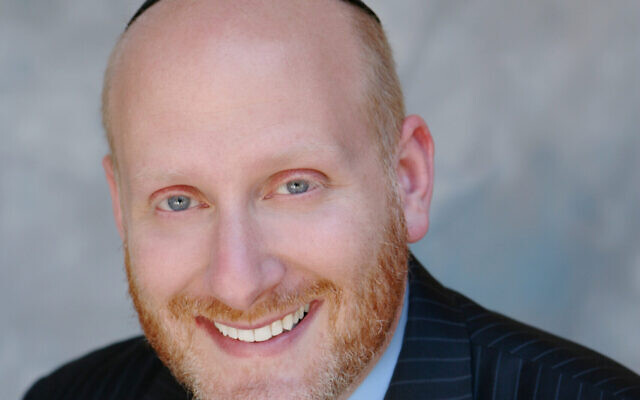
The spring months provided educators with experience they can apply as they open their doors again, all the while aware that there is no guarantee they will stay open. The virus will be the determining factor, Leubitz said. “You can look at what our situation was then and you can argue that six months later we’re no better off or perhaps in a worse situation,” Leubitz said. “On some level it’s ironic that we’re opening schools in a situation that’s not better.”
The Marcus Jewish Community Center of Atlanta was severely impacted by COVID-19. Cleaning protocols and social distancing mandates were increased, but on March 13, after the threat simply became too great, the doors closed.
Anticipating a significant loss of revenue from memberships and program fees, the MJCCA laid off or furloughed more than half of its staff. A summer at Camp Barney Medintz was lost, though abbreviated day camps were saved. A phased reopening of the MJCCA began in June.
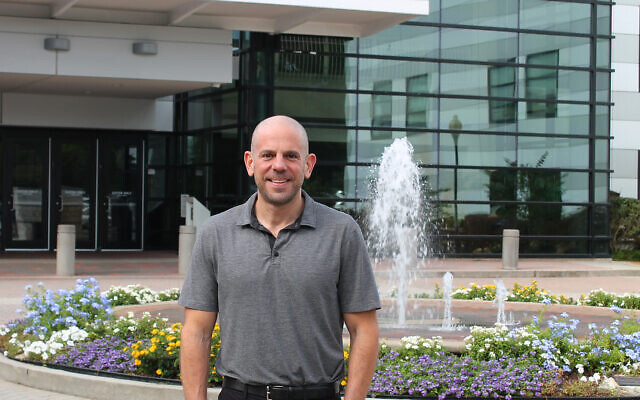
“I remember the time period, back in mid-March, as being exhausting, with so many decisions that needed to be made, in a thorough, well thought-out manner without a real playbook for management during a global pandemic. It was a time when the management and leadership of the MJCCA spoke morning, noon and night, weighing every possible option and thinking through myriads of scenarios,” CEO Jared Powers said. “It was a lesson in being nimble, agile and flexible as well as leaning on every expert in every area — finance, legal, health, safety, operations, etc. — before we made final decisions.”
“As we went virtual in all of our programming, it was a lesson in innovation, accommodation and dedication as our incredible staff met the community where they were, in their living rooms — through Zoom or Facebook Live or FaceTime – and connected with tens of thousands of members of the community who were isolated, lonely, and needed the connection they rely on from the MJCCA,” Powers said.
Jewish Family & Career Services closed its doors on a Friday, with all services available virtually on Monday.
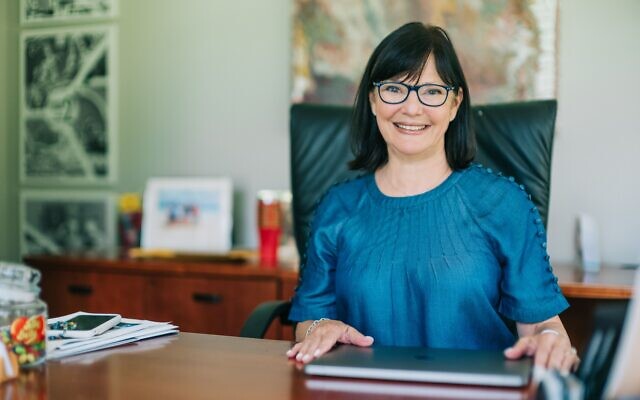
“I remember the March 13-15 time period with complete clarity. It’s remembered in the same category as ‘Where were you when JFK was shot?’ or ‘Where were you when the Twin Towers fell?’ It holds that kind of importance in my memory,” JF&CS executive director Terri Bonoff said. “We knew it was coming. We had been discussing it for a few weeks. We knew that we were going to be put to the test and asked to deliver services with greater intensity and completely virtual.”
Looking back, “We should have invested in technology infrastructure on day one rather than piecemeal as the needs became so great they were an impediment to our work,” Bonoff said.
If JF&CS’s staff was going to care for the community, then JF&CS needed to care for the staff. “Most things were collaboratively decided. Certain things were simply stated,” Bonoff said. Everyone would keep their jobs. Paychecks would not be interrupted. COVID-related absences would be paid without question. Taking care of family was the first priority. “When you believe in your staff, take away any fear or insecurity of job loss, people stand up and deliver results that far surpass what is predictable or imaginable.”
One thing was clear early on, Bonoff said. “We needed to raise more money for emergency financial assistance and food.”
Funding to meet immediate needs and then to shore up the communal infrastructure came from Federation, which has conducted regular conference calls to assess the needs of various sectors of the community. Jewish HomeLife, the JCC, JF&CS and the day schools have been major recipients of the emergency fund.
“The thing I remember most about those few days was how quickly we had to move to virtual and how what seemed to be happening was like nothing we have ever experienced. On the one hand we had been preparing, but I still remember it seeming in those few days like things were moving at warp speed,” said Eric Robbins, president and CEO of Federation.
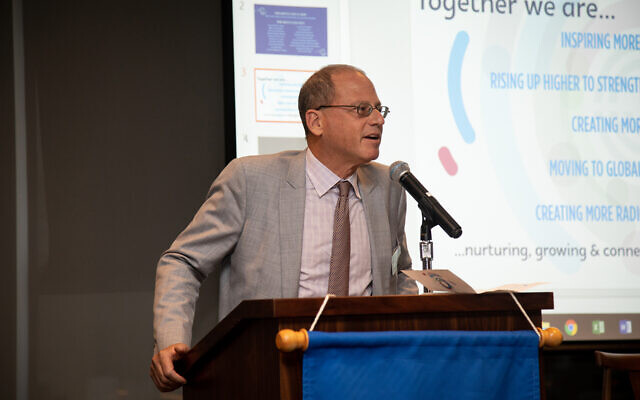
With Federation staff working from home, Robbins has learned that “We can operate remotely and still be incredibly effective. It doesn’t mean it’s a good idea to be fully remote. In-person relationships are incredibly important. But there’s also no need to shy away from the power of what can happen remotely.”
“Hindsight is always 20/20. It would have been great to recognize sooner that this was not a short-term inconvenience. It looks like it may be our new reality. We still would have needed to conduct the same emergency response even had we known, but a lot of the future thinking may have started sooner to create some feeling of stability a little faster,” he said.
As for the way forward, “I think we may be realizing that the future looks very different than the past and this moment may be a real catalyst for a renaissance in Jewish life. What that future is I am not sure, but maybe now we will be more ready to create it,” Robbins said.
Hirsch, the director of “Indecent,” is creating a new future. Her job as education director at Theatrical Outfit was eliminated. “I spent several months completely unemployed before getting a temporary position at The Epstein School, where I am assisting the drama and art teachers in carrying out their lessons in the classroom. I guess you could call it my ‘COVID job,’” she said.
Hirsch is still smarting from the shortened run of “Indecent.” “Honestly, it broke my heart to cancel this show. I was extremely proud of the work and was extremely excited to share it with all of Atlanta, but particularly, our Jewish community. I haven’t let go of the hope that one day it may be able to be revived with the same cast and production team at a to-be-determined theater in town,” she said.
- Jewish HomeLife
- Atlanta Rabbinical Association
- Ahavath Achim
- Rabbi Laurence Rosenthal
- COVID-19
- Berman Commons assisted living
- jewish federation of greater atlanta
- Harley Tabak
- Mira Hirsch
- Being Jewish in the Time of Coronavirus
- Rabbi Ari Leubitz
- atlanta jewish academy
- Marcus Jewish Community Center of Atlanta
- Marcus JCC. MJCCA
- Jewish Family & Career Services
- Terri Bonoff
- News
- Community



comments